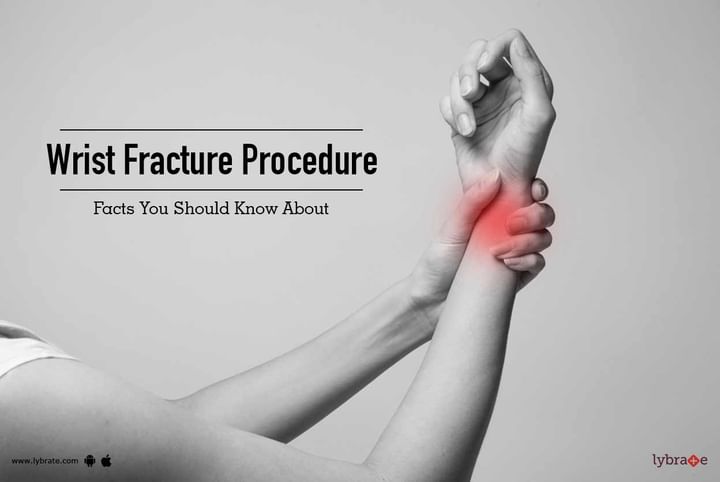Wrist Fracture Procedure - Facts You Should Know About
A broken wrist is known as a wrist fracture and it may occur due to a variety of causes starting from undue pressure on the wrist which can result in an injury as well as debilitating conditions like arthritis, which makes the bones and joints prone to fractures. There are also non displaced breaks, which are stable kinds of fractures and in which, the wrist remains in its place. Let us find out more about the kinds of fractures and the procedures for treatment of the same.
Type of Fracture: The wrist is basically made up of eight small bones that connect the two long arm bones, which are known as the radius and ulna and create the forearm. The broken wrist can take place in any of these bones. A hand surgeon will generally take a look at this kind of fracture and determine whether it is displaced, stable or open. As discussed earlier, a wrist fracture can be of various types. While a non displaced wrist fracture is a more stable kind that does not really require much more than rest or medication, a displaced wrist fracture is a non stable kind where dislocation happens.
Other Factors: There are a variety of other factors that will be taken into consideration in order to repair this kind of a fracture. To begin with, the Orthopaedic specialist will consider your age and the kind of job, hobbies and other kinds of activities that you indulge in. Also, the doctor will try to ascertain whether or not you are in good health on an overall basis. The presence of other injuries will also be taken into account for this kind of an injury in there has been a bike or car accident that has caused the fracture.
Treatment: The method of treatment will vary as per the considerations listed above. A padded splint may be installed in order to align and support the bones and wrist respectively, so that there is ample relief from the acute pain as well. Further, an unstable fracture will require a cast as to support the entire forearm and give proper rest to the region so that the bone can grow back together and get aligned again. Surgery may also be required for very severe cases, and pins, screws, metals and plates may also be used depending on the exact location and type of fracture.
Recovery: Remember to move your fingers as much as you can so as to prevent them from getting stiff while they are held up in a splint or a cast.
Hand therapy will be helpful in gaining back motion and function of the wrist.



+1.svg)
